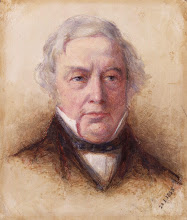NOT THE SEASON FOR ATHEISTS?
Here is a column I submitted to the Faith and Values page of the Spokesman. It was in response to the October guest column of a retired theology professor. I got the cold shoulder, even though I had been encouraged earlier to submit something from the atheist perspective. Is this the wrong season for diverse views?
In last month's column, Professor Howard Redmond reported that he and his Christian brethren are apt to leave out the subject of human suffering or, "natural evil," as they sit over coffee and donuts to explore the basic tenets of their theology. It is interesting to read such a confession. Though I do not believe that human suffering can be confined to disappointment and aimlessness, as he seems to say. And also, I would rather see Redmond and others state flat out their tacit assumption that God exists before they go on to discuss evil and so forth. It would show a more proper humility in the face of such a momentous question. As while it might seem redundant to some, readers like me are offended by the implication that we need to share this belief in order to be brought into the discussion But that won't stop me. To my mind, God is a fiction , the implications of which I find frightening and disturbing.
According to Redmond, "If we disobey or ignore him (our heavenly father), there are consequences we bring upon ourselves. But he always wishes our good." Consequences? Does he mean punishments? I could take it that way. Or if he is including good consequences, what is the point?. I'll bet that at the least he does not have in mind as a consequence anything which I might put on my list to Santa. So here I am, both ignoring and disobeying an omnipotent and omniscient tyrant - real, in the eyes of many. Shouldn't I be shaking in my boots, in case the faithful feel God needs help in meting out proper consequences?
The entire argument, used by Reynolds, that " In all things God works for good" is total malarkey on its face. It says that God allows evil so that some good will come in the future - hooray for God's providence. But without these evils permitted by God there would surely be much more good. Isn't that obvious? The unreasonable desire for faith in such a chimera as God blinds one to what should be crystal clear.
Evil is here to stay though it certainly should not be welcome. And in fact, belief in God has contributed more than its share to the total supply. But since there is no credible evidence supporting the argument for the existence of either a good God, an evil God, or any kind of God in between, it does not seem likely that he has anything to do with it, and hence there should be no real problem of God permitting evil. So why are these theologians giving themselves such a headache over the matter? Oh, that's right, they're theologians Astrologers get tangled up in the same way.
One issue that does give me pause is the huge number of humans that profess to believe in a God and his prophets. And when I see included in this number people I love or respect, the mystery for me deepens. That's when I like to recall the words of the great French mathematician LaPlace: "The mind has its illusions as the sense of sight; and in the same manner that sense of feeling corrects the latter, reflection and calculation correct the former." And it seems when an emotional payoff is added to the mental illusion it is extra hard to right the ship. But I have hope that in time more of the world will dig down and begin the required reflection and calculation
Finally, the authoritarian overtones contained in the references by Reynolds to a heavenly father and his children are disturbing. He asserts correctly that love can not be commanded - even by his God. But what about commanding belief in the absence of evidence? Should not our reason be free from commandments just as our love is? After all, if something appears false the best and most natural thing we can do is to acknowledge the fact, while of course leaving ourselves open to rational rebuttal or contrary evidence .

